DO PARABENS REALLY DESERVE THE HATRED THAT THEY GET IN THE BEAUTY AND PERSONAL CARE INDUSTRY?
Is not the question that we ask ourselves when we're proudly using our paraben - one of the most hated and feared ingredients in the personal care industry - free products.
Let's take a deep dive into its origin, uses and composition to find out whether they really deserve the hatred.
WHAT ARE PARABENS?
Speaking from a cosmetic use point of view, they are preservatives i.e. they protect our cosmetic products from microbes. Every time your moisturizer (or makeup or shampoos, or lotion or toothpaste .. literally any product that's packaged) comes in contact with air or you touch it, it is exposed to several micro-organisms like bacterias, fungi etc. The products need some sort of protection so that they don't get infested with these deadly (yep they can kill) micro-organisms every time you open or touch your moisturizer. Think of preservatives as your swordsman fighting against an army of bacteria and other organisms to protect you from getting infected.
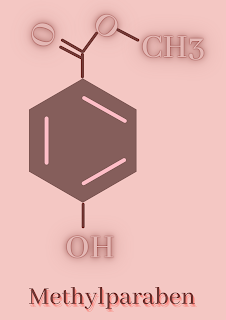
Some common parabens are methylparaben, Ethylparaben, Propylparaben and Butylparaben. They are used either independently or in combination with each other or other class of preservatives to improve their potency.
WHAT MAKES PARABENS SPECIAL TO COSMETIC CHEMISTS?
There are many other preservatives that can be used in cosmetic formulations but parabens specifically stand out to formulation chemists. The reason behind that is manyfold. Firstly, parabens are found to be extremely effective against fungi and gram-positive bacteria. They are found to be effective against a broad range of micro-organisms. Secondly, they are inexpensive and who doesn't love a good bargain? Using inexpensive raw materials means less money going into the formulation thus making the finished product less expensive.Thirdly, parabens are effective even in varying pH. They are effective in acidic, neutral and alkaline mediums as they are stable and active in the pH range of 3 - 8. Having pH neutrality makes parabens of great importance to cosmetic chemists as it allows them to be flexible and work with almost any kind of formulation. Besides that, parabens, as I've mentioned above, are colourless and odourless and they do not change their physical appearance and feel with time, which again is a great asset from a formulation point of view.
Last but not least, parabens are found to be the safest preservative. Yep, you read that right, parabens are proven to be the safest preservative due to their low toxicity and chemically inert nature. According to FDA, a daily dose of about 75mg of parabens in a man weighing 60 kg is considered generally safe and is dangerous only if it exceeds this daily dose. Now just in case, you're wondering, preservatives are generally used in 0.2% -1% depending on the kind and amount (single or multiple) of parabens.
HOW ARE PARABENS MADE?
For cosmetic or pharmaceutical use, parabens are generally synthesized in the lab from para hydroxybenzoic acid. However, parabens are also found in certain fruits and even formed naturally in the human body.
Also, on a sidenote, parabens are biodegradable.
WHY ARE PARABENS SO FEARED?
It all started in 2004 when a study of mastectomy found parabens in the tissues of the breasts that were removed. There's no explanation for how parabens were found there and no solid evidence linking parabens to breast cancer but just that they were there (WHAT!! I know right!!). There's no study supporting the claim that parabens cause breast cancer.
Parabens were invented in the 1980s and were the most common and worldwide accepted preservatives till 2004. Parabens were found to have the least toxicity and the least number of allergic reactions to sensitive or compromised skin than many other preservatives. However, after the study of 2004, people started fearing parabens and demanded paraben-free products. The leading companies in the industry had no other choice but to look for other options that served the purpose and didn't make the consumer unhappy either.
Nowadays, preservatives like Benzenemethanol, Phenoxyethanol, Phenoxymethanol, 1,2 - hexanediol etc. are more commonly used and preferred over parabens by the consumers even though they hold their own threats.
SO, ARE PARABENS REALLY FEARED FOR NO REASON AT ALL?
The answer to this question is Yes and No.
Parabens are considered to be a safe choice when it comes to preservatives in cosmetics and is declared safe to use by FDA as well.
However, what's worrisome is chlorinated paraben. When we use say, a shampoo that contains parabens, it is washed down the sewage where it is quite easy for parabens to be converted into chlorinated parabens due to the presence of free chlorine or sodium hypochlorite in the water. Chlorinated parabens are found to be an endocrine disruptor because they potentially imitate estrogen and can be stored in cell membranes. Even though parabens posses no severe threat to our health or the environment, chlorinated parabens are quite the opposite and hold a potential threat to humans, the environment and other organisms (like the ones thriving in the water that contains chlorinated paraben).
So, to answer the original question,
Do parabens really deserve the hatred that they get in the beauty and personal care industry? Not really but the hatred is understandable.
Are parabens safe to use right now? Yes
Will they be safe to use in the future? Maybe.. Maybe not..
Parabens might not be feared for the right reasons but at least the fear is forcing both, the industry and the consumers, to evolve and to look for other solutions that do not harm the environment and its habitat in any way.
Neither this blog nor any of the product reviews are sponsored. They depict my own honest opinion and clicking on the links mentioned won't benefit me in any way. Happy Reading ; )
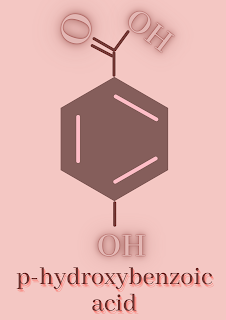
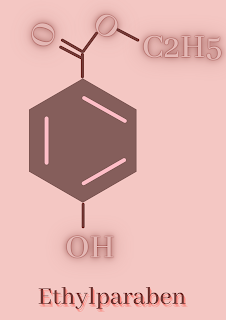
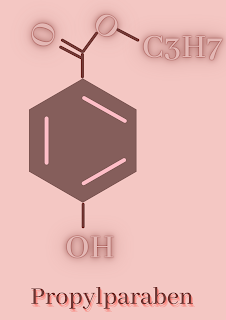
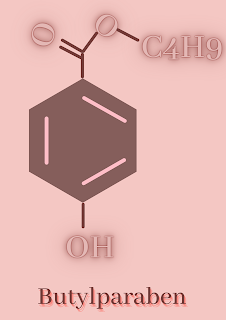
Very helpful
ReplyDeleteGlad you liked it : )
Delete